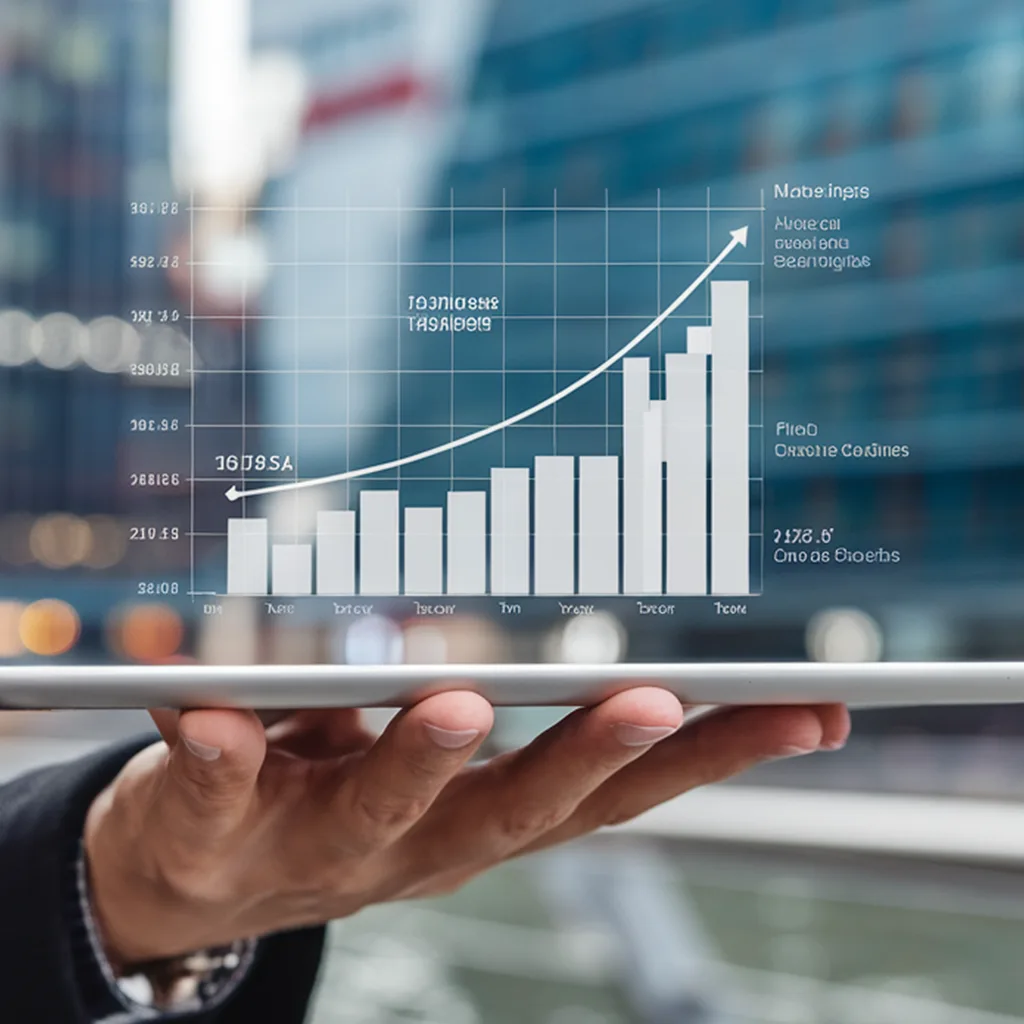Examples of Machine Learning in Marketing: Transforming Strategies for Success
Machine learning is revolutionizing the field of marketing by enabling businesses to analyze vast datasets, identify patterns, and make data-driven decisions in real-time.
This article explores various examples of machine learning in marketing, provides insights into its benefits, and offers actionable strategies for businesses to enhance their marketing efforts. With a focus on SEO, we’ll delve into different machine learning applications and their impact on marketing success.
Understanding Machine Learning in Marketing
What is Machine Learning?
Machine learning is a subset of artificial intelligence that involves training algorithms to recognize patterns in data and make predictions or decisions without explicit programming. In marketing, this technology allows for more precise targeting, personalized experiences, and optimized campaigns.
Benefits of Machine Learning in Marketing
Machine learning offers several advantages for marketers, including:
- Enhanced Targeting and Segmentation: Identifying and reaching high-value customer segments.
- Personalized Customer Experiences: Delivering tailored content and recommendations.
- Optimized Campaign Performance: Continuously improving strategies based on real-time data.
Real-World Examples of Machine Learning in Marketing
1. Predictive Analytics for Customer Insights
Predictive analytics uses historical data to forecast future customer behavior, preferences, and trends. This helps marketers make informed decisions and create more effective strategies.
Example: E-commerce Sales Forecasting
An e-commerce company uses machine learning to analyze past purchase data and predict future sales trends. By understanding which products are likely to be in demand, the company can adjust inventory levels, plan promotions, and optimize marketing campaigns, resulting in increased sales and reduced stockouts.
2. Personalized Marketing Campaigns
Machine learning enables the creation of highly personalized marketing campaigns by analyzing user behavior, preferences, and interactions.
Example: Streaming Service Recommendations
A streaming service uses machine learning algorithms to recommend movies and TV shows based on a user’s viewing history and preferences. This personalized approach not only enhances user satisfaction but also increases viewing time and subscriber retention rates.
3. Dynamic Pricing Strategies
Dynamic pricing involves adjusting prices in real-time based on demand, competition, and other factors. Machine learning models can optimize pricing strategies to maximize revenue and market share.
Example: Airline Ticket Pricing
An airline leverages machine learning to adjust ticket prices dynamically. By analyzing factors such as booking patterns, competitor prices, and seasonal demand, the airline can optimize pricing to fill seats and increase revenue.
4. Sentiment Analysis for Brand Management
Sentiment analysis uses natural language processing (NLP) to gauge public sentiment from social media, reviews, and other user-generated content. This helps brands understand customer opinions and respond proactively.
Example: Product Launch Monitoring
A cosmetics brand employs machine learning to monitor social media sentiment around a new product launch. The algorithm identifies positive and negative trends, enabling the brand to address customer concerns quickly and adjust marketing strategies accordingly.
5. Programmatic Advertising
Programmatic advertising automates the buying and placement of ads using machine learning to ensure ads reach the right audience at the right time.
Example: Real-Time Ad Bidding
A digital marketing agency uses programmatic advertising platforms that leverage machine learning to manage ad campaigns. These platforms analyze user data to optimize ad placements in real-time, resulting in higher engagement and lower costs per click.
6. SEO Optimization
Machine learning enhances SEO by analyzing search patterns, user behavior, and content performance to optimize websites for better search engine rankings.
Example: Content Strategy Optimization
A travel blog uses machine learning to identify which keywords and topics drive the most traffic. By optimizing content based on these insights, the blog achieves higher search rankings and attracts more organic visitors.
Leveraging Machine Learning for SEO Success
Improving Keyword Research
Machine learning algorithms can analyze large datasets to identify high-potential keywords and predict their future performance, helping businesses optimize their content strategy.
Example: Trend Analysis for Keywords
An online retailer uses machine learning to discover trending keywords related to seasonal products. By incorporating these keywords into their content, the retailer boosts its search visibility and captures more organic traffic during peak seasons.
Enhancing Content Relevance
Machine learning can determine the most relevant content for specific user queries, improving the chances of ranking higher in search results and enhancing user satisfaction.
Example: Matching User Queries
A financial advice website uses machine learning to analyze user queries and match them with the most relevant articles. This not only improves SEO performance but also ensures users find valuable content that meets their needs.
Optimizing User Experience
Machine learning helps optimize website design and navigation by analyzing user interactions and identifying areas for improvement.
Example: User Interaction Analysis
An online magazine uses machine learning to track user behavior and identify which page layouts and features lead to higher engagement. By implementing these insights, the magazine improves user experience, leading to longer visit durations and reduced bounce rates.
Enhancing Link Building Strategies
Machine learning can identify high-quality backlink opportunities by analyzing website authority, relevance, and link potential, helping businesses build a robust backlink profile.
Example: Backlink Opportunity Identification
A technology blog uses machine learning to find authoritative websites in its niche for potential backlink opportunities. By securing backlinks from these sites, the blog improves its domain authority and search rankings.
Personalizing Email Marketing
Machine learning can analyze customer data to create personalized email campaigns that resonate with individual recipients, increasing open rates and conversions.
Example: Tailored Email Campaigns
An e-commerce platform uses machine learning to personalize its email marketing campaigns. By analyzing purchase history and browsing behavior, the platform sends tailored product recommendations and exclusive offers, leading to higher engagement and sales.
Automating Social Media Marketing
Machine learning can automate social media posting and engagement by analyzing user behavior and optimal posting times, ensuring a consistent and effective social media presence.
Example: Social Media Scheduling
A fashion brand uses machine learning to schedule social media posts at times when their audience is most active. The brand also uses AI to respond to customer inquiries and comments in real-time, improving customer engagement and satisfaction.
Frequently Asked Questions
How does machine learning differ from traditional marketing techniques?
Traditional marketing techniques often rely on manual data analysis and predefined rules, whereas machine learning uses algorithms to autonomously analyze data and identify patterns. This allows for more dynamic, adaptive, and precise marketing strategies.
Can machine learning improve local SEO efforts?
Yes, machine learning can enhance local SEO by analyzing local search patterns and user behavior. This helps businesses optimize content and targeting strategies for specific geographic locations, resulting in higher local search rankings and increased foot traffic.
Are there any ethical considerations when using machine learning in marketing?
Ethical considerations include data privacy, transparency in data usage, and ensuring that algorithms do not perpetuate biases. Businesses must handle user data responsibly and be transparent about how data is used to build trust with customers.
How can businesses measure the effectiveness of machine learning-powered marketing strategies?
Effectiveness can be measured using key performance indicators (KPIs) such as conversion rates, click-through rates, customer engagement metrics, and return on investment (ROI). A/B testing and continuous monitoring of these metrics provide insights into the success of machine learning initiatives.
What are some challenges associated with implementing machine learning in marketing?
Challenges include the need for large volumes of high-quality data, substantial computational resources, and expertise in machine learning techniques. Additionally, addressing potential biases in algorithms and ensuring data privacy and security are critical.
How can small businesses get started with machine learning in marketing?
Small businesses can start by identifying key areas where machine learning can add value, such as customer segmentation or predictive analytics. Partnering with AI vendors or using accessible machine learning tools and platforms can help small businesses implement these technologies effectively.
Machine learning is transforming marketing by providing advanced tools for targeting, personalization, and optimization. By leveraging machine learning algorithms, businesses can enhance their SEO strategies, improve customer engagement, and achieve higher ROI. As technology continues to evolve, embracing machine learning will be essential for staying competitive and achieving long-term success in the digital marketplace.





